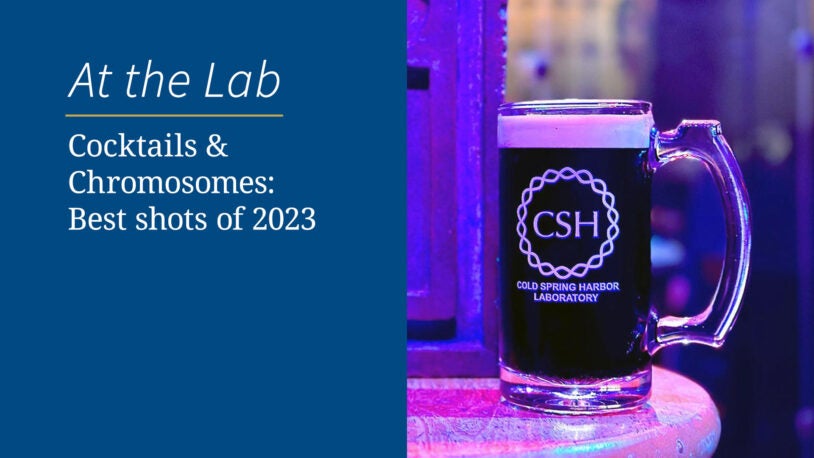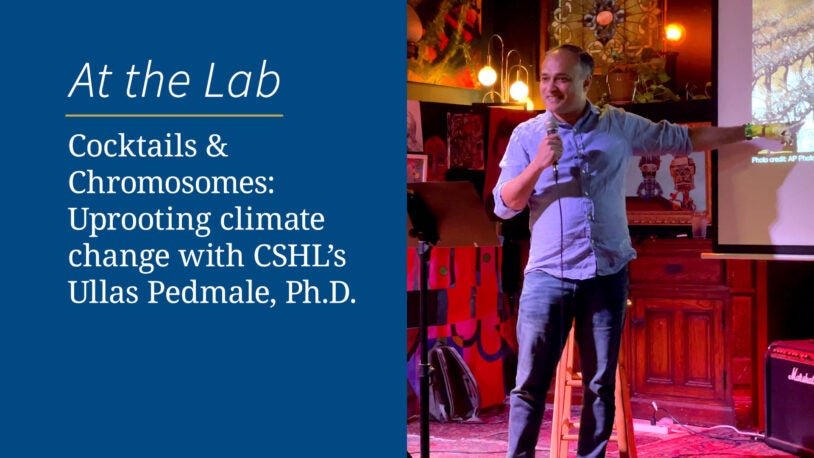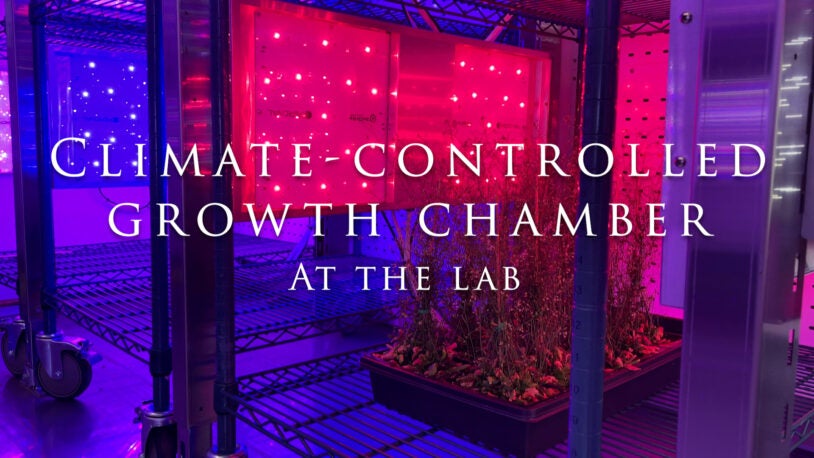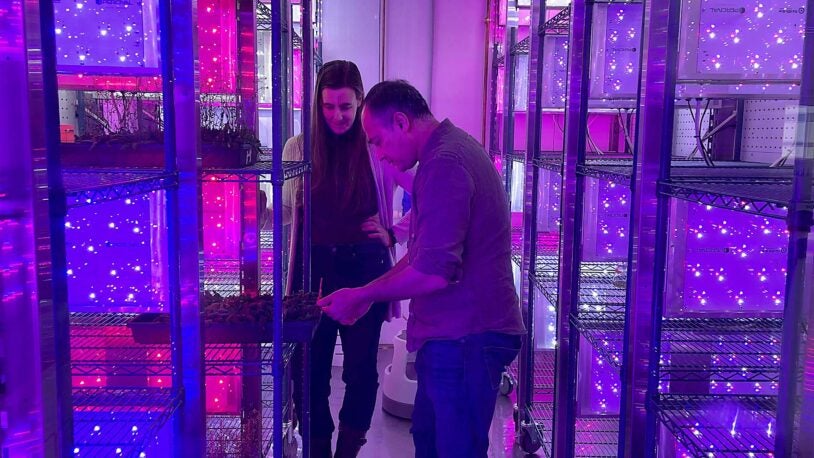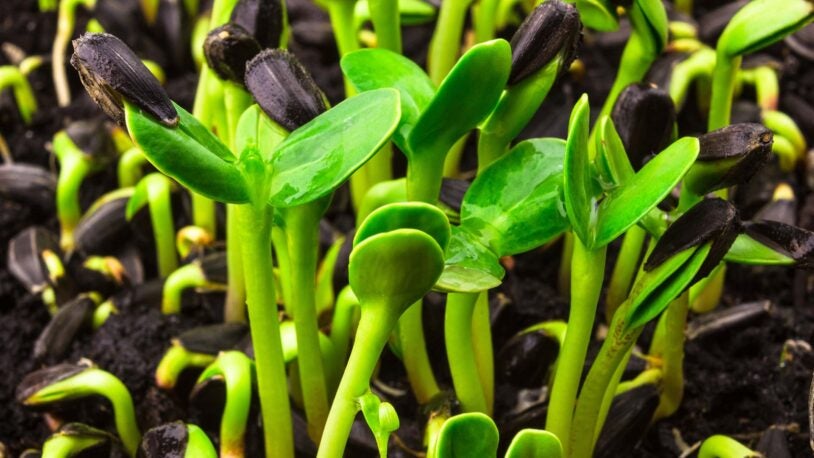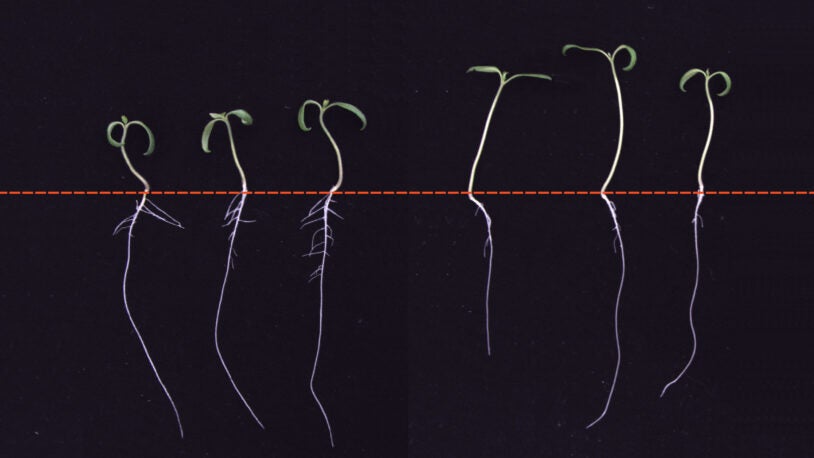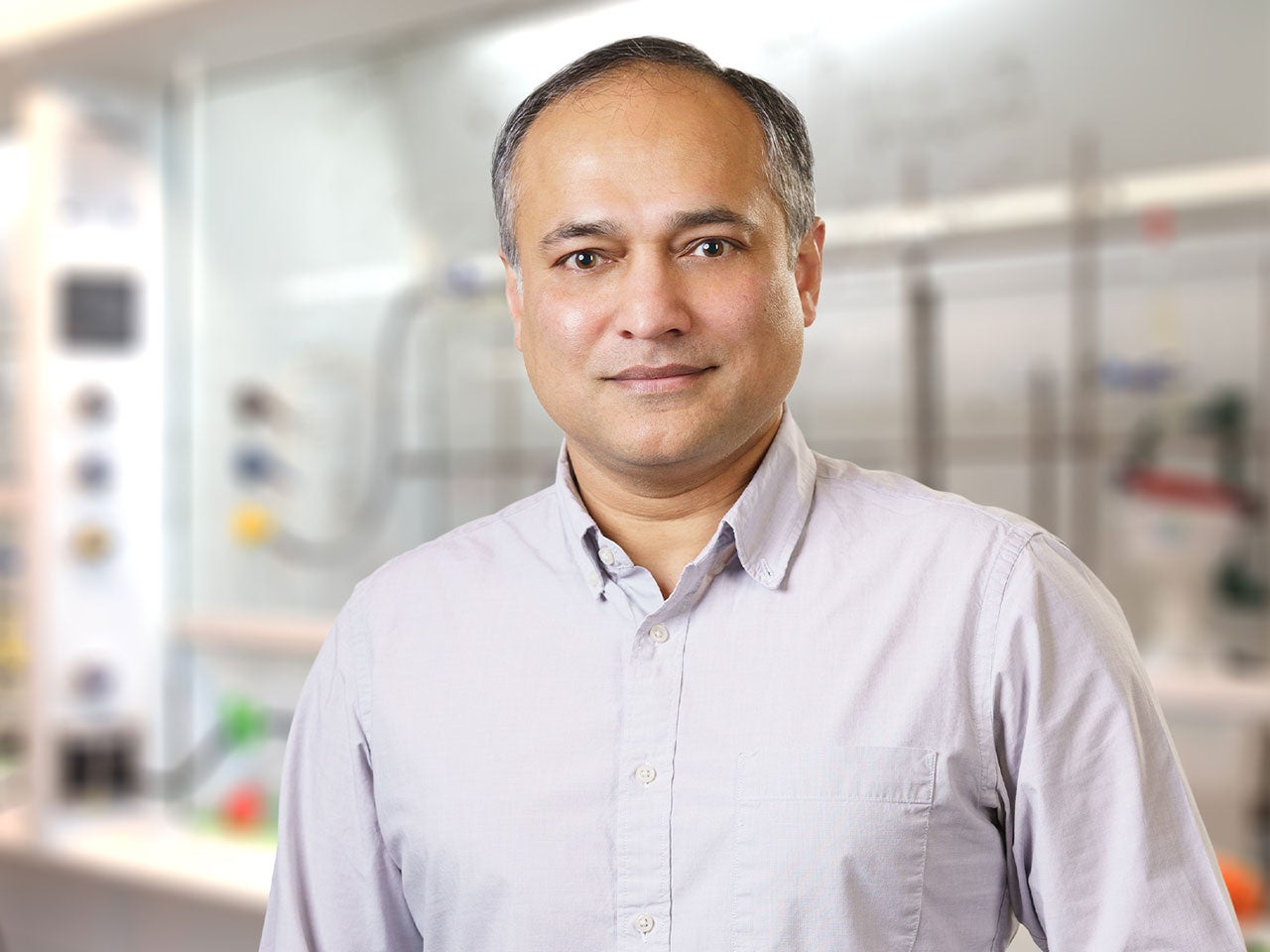
Ullas Pedmale
Associate Professor
Ph.D., University of Missouri, Columbia, 2008
pedmale@cshl.edu | 516-367-5991
Unlike animals, plants neither have specific organs that see or hear various stimuli, yet, plants are sensitive to their surrounding environment and modify their development according to various external signals. My lab studies how the environment of a plant modulates its growth and development. Understanding environmental control of growth will have far-reaching implications for agriculture, energy production, and many other human activities.
Plants and animals interact with their environment. Since plants are incapable to move around, they are sensitive to their surrounding environment and modify their development according to external signals. Plants face variability in growth conditions – temperature, light quality and quantity, herbivores, pathogens, water availability etc. Yet, plants respond to these biotic and abiotic factors and survive substantial fluctuations in its environment. Plants also must balance the range of potential threats and benefits confronting it and should make appropriate decisions on resource allocation. Such adaptability is essential for the sessile nature of the plants. The mechanisms that underlie this adaptability likely involve complex signaling to generate the appropriate response. In some adaptive responses, for example, when the plants have to cope with climate change and increased competition for light, there is a decrease in productivity (yield, biomass) as the plant relocates resources to better adapt.
The Pedmale Lab’s research goals seek to determine the mechanisms behind how a plant perceives and successfully adapts to its environment. We also aim to understand how a plant must integrate intrinsic and extrinsic cues and ‘decide’ how best to respond to environmental cues. Understanding how plants deal with, and respond to a multitude of environmental signals could help to develop crops that cope with unfavorable growth conditions without significant changes in yield.
The CSHL School of Biological Sciences’ class of 2024
May 5, 2024
The School of Biological Sciences awarded Ph.D. degrees to 11 students this year. Here are some stories and reflections from their time at CSHL.
Cocktails & Chromosomes: Best shots of 2023
January 16, 2024
After a four-year hiatus, Cocktails & Chromosomes returned in 2023. Relive the past year’s best moments and see what’s in store for 2024.
Cocktails & Chromosomes: Uprooting climate change
September 21, 2023
Pull up a stool to watch CSHL Associate Professor Ullas Pedmale speak about plants and climate change at Industry bar in Huntington, NY.
CSHL’s Cocktails & Chromosomes series returns this summer
June 22, 2023
The event, serving up stimulating science talks over delicious drinks, heads to Industry bar in Huntington, New York. First on tap for June 29 is AI.
Climate-control technology future-proofs plants
June 13, 2023
Take a virtual tour of CSHL’s new state-of-the-art growth chambers with plant biologist Ullas Pedmale.
New CSHL technology controls the weather and time itself
June 8, 2023
State-of-the-art plant growth chambers at CSHL allow scientists to mimic the effects of climate change on crops around the world.
What shedding light on plant growth could mean for cancer
June 13, 2022
CSHL researchers have found a new way to control plant growth by manipulating proteins involved in the process of detecting light.
Do you have the dirt on plant research?
March 31, 2022
New research is constantly sprouting. Take this quiz and test your plant knowledge.
Plants fight for their lives
January 31, 2022
As arable land disappears, a genetic tweak might secure the world’s food supply.
Why roots don’t grow in the shade
October 27, 2021
CSHL researchers found that sun-loving plants grown in the shade express stress hormones, which stunt their root systems.
All Publications
An interplay between bZIP16, bZIP68, and GBF1 regulates nuclear photosynthetic genes during photomorphogenesis in Arabidopsis
21 Aug 2023 | New Phytologist
Norén Lindbäck, Louise; Ji, Yan; Cervela-Cardona, Luis; Jin, Xu; Pedmale, Ullas; Strand, Åsa;
Light and temperature regulate m6A-RNA modification to regulate growth in plants
17 Jan 2023 | bioRxiv
Artz, Oliver; Ackermann, Amanda; Taylor, Laura; Koo, Peter; Pedmale, Ullas;
Cryptochromes and UBP12/13 deubiquitinases antagonistically regulate DNA damage response in Arabidopsis
16 Jan 2023 | bioRxiv
Hu, Yuzhao; Rosado, Daniele; Lindb Ck, Louise; Micko, Julie; Pedmale, Ullas;
Publisher Correction: Oligodendrocyte precursor cells engulf synapses during circuit remodeling in mice.
Dec 2022 | Nature Neuroscience | 25(12):1735
Auguste, Yohan; Ferro, Austin; Kahng, Jessica; Xavier, Andre; Dixon, Jessica; Vrudhula, Uma; Nichitiu, Anne-Sarah; Rosado, Daniele; Wee, Tse-Luen; Pedmale, Ullas; Cheadle, Lucas;
Oligodendrocyte precursor cells engulf synapses during circuit remodeling in mice
28 Sep 2022 | Nature Neuroscience
Auguste, Yohan; Ferro, Austin; Kahng, Jessica; Xavier, Andre; Dixon, Jessica; Vrudhula, Uma; Nichitiu, Anne-Sarah; Rosado, Daniele; Wee, Tse-Luen; Pedmale, Ullas; Cheadle, Lucas;
Systematic histone H4 replacement in Arabidopsis thaliana reveals a role for H4R17 in regulating flowering time
26 Jul 2022 | The Plant Cell | :koac211
Corcoran, Emma; LeBlanc, Chantal; Huang, Yi-Chun; Tsang, Mia; Sarkiss, Anthony; Hu, Yuzhao; Pedmale, Ullas; Jacob, Yannick;
UBP12 and UBP13 deubiquitinases destabilize the CRY2 blue light receptor to regulate Arabidopsis growth
6 Jun 2022 | Current Biology
Lindbäck, Louise; Hu, Yuzhao; Ackermann, Amanda; Artz, Oliver; Pedmale, Ullas;
WRKY transcription factors and ethylene signaling modify root growth during the shade avoidance response
27 Oct 2021 | Plant Physiology
Rosado, Daniele; Ackermann, Amanda; Spassibojko, Olya; Rossi, Magdalena; Pedmale, Ullas;
Shade-induced WRKY transcription factors restrict root growth during the shade avoidance response
2021 | bioRxiv
Rosado, Daniele; Ackermann, Amanda; Spassibojko, Olya; Rossi, Magdalena; Pedmale, Ullas;
UBP12 and UBP13 deubiquitinases destabilize the CRY2 blue-light receptor to regulate growth
29 Apr 2021 | bioRxiv
Norén Lindbäck, Louise; Artz, Oliver; Ackermann, Amanda; Pedmale, Ullas;

